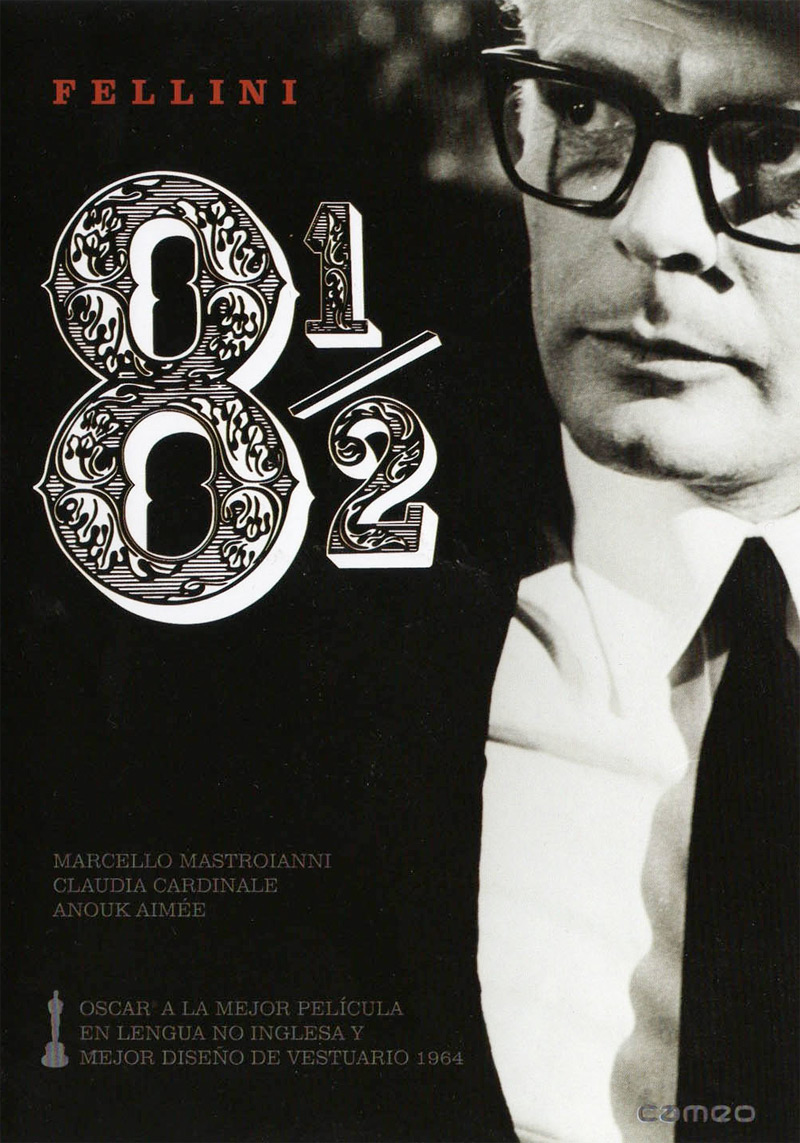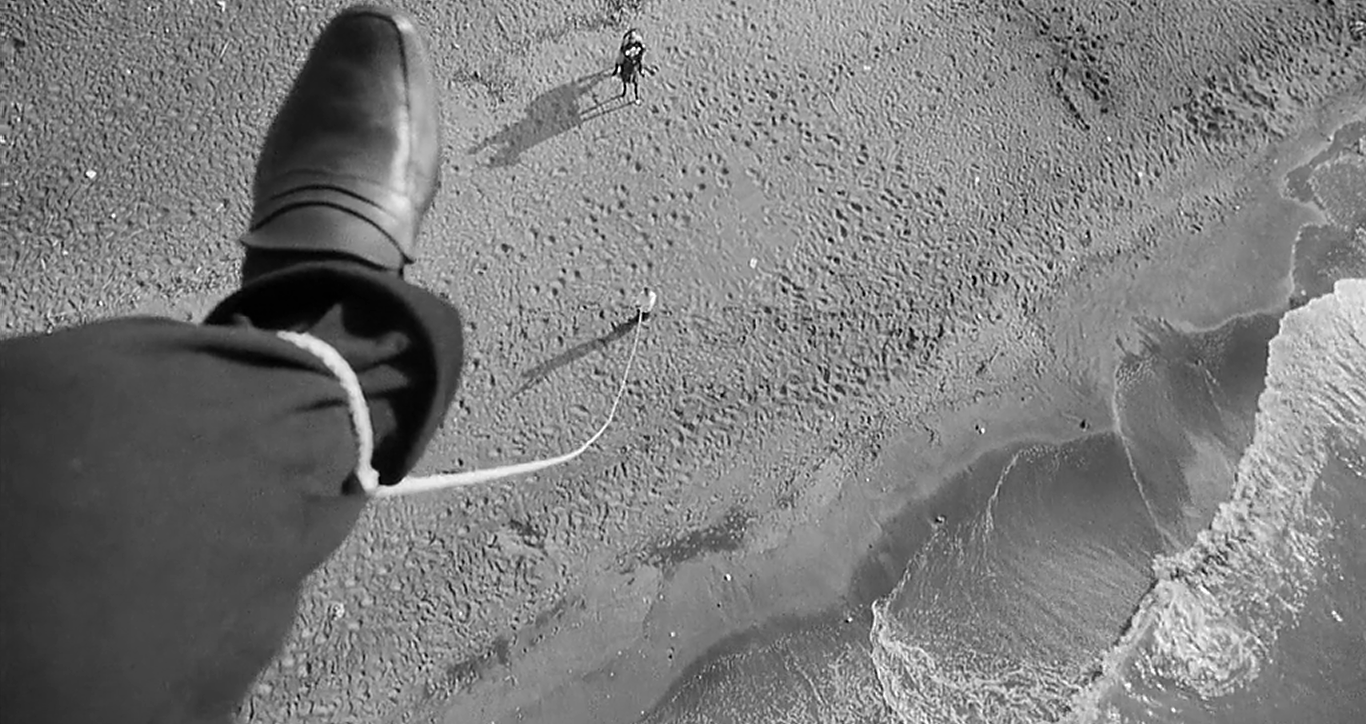Summary
A director scrambles to come up with an idea for his next picture.
My Thoughts
Until recently, I’d been rather unfamiliar with the work of Fellini, but after viewing “La Dolce Vita”, my need to see more of Fellini’s oeuvre has been insatiable. This is one of the best-reviewed movies of all time, it’s a film that has influenced countless directors, and even after fifty-five years, it still feels amazingly contemporary. It should be no surprise to you, dear reader, that I loved this movie and I’ll spend the next few hundred words raving about it. It’s a delightful masterpiece, one that’s hilarious as well as touching, and it gives us amazing insight into the mind of the genius that was Fellini.
"All the confusion of my life has been a reflection of myself."
Like with both “La Dolce Vita” and “Amarcord”, this film’s premise is rather simple; it’s the way that Fellini executes his scenes, with so much style and pizzazz, with so much unrestrained giddiness, that it makes the film a wonder to behold. The premise is that acclaimed director Guido Anselmi (Marcello Mastroianni, “Divorce Italian Style”) is in between his eighth and ninth film. The studio has already started to produce elaborate science fiction sets, and actors are already being cast, but Guido has no real script. He’s got ‘director’s block’ as he calls it. As actors, producers, and various crew members hound him for details about a movie that doesn’t yet exist, Guido flashes back to moments of his childhood in beautiful and bizarre dreams. He thinks of woman that he’s known and all the friends he’s made throughout his life; he thinks of his sorrows and his joys, and all of this is shown in a way that only Fellini could show you.
Perhaps my favorite things in Fellini films are his dream sequences. The way that he weaves them into the storyline happens seamlessly. Guido will be standing in one room, and then walk into another and suddenly we’re in a dream or memory sequence without any sort of prompting. It makes the world feel more fantastical, and Fellini does it in a way that never feels confusing or bizarre. He’s able to create the illusion of structure though the film itself is all over the place in terms of what’s going on. It’s wonderfully unique, and it give the viewer plenty of insight into what Guido is thinking about.
Another thing I loved about this film was the acting. Marcello Mastroianni is the pinnacle of cool, and this film is a perfect example of that. In “La Dolce Vita”, Marcello was a paparazzi, chasing after important people, but in this film, Marcello is the important person that paparazzis chase. Marcello’s outwardly cool, collected approach to everything is juxtaposed by the inner turmoil only we, the viewers, are aware of. Fellini does a great job of making us feel like we’re getting the in with the director, making us feel close to him, while distancing the director from everyone else.
I’ve heard it said that “8 ½” and “La Dolce Vita” could almost be called companion pieces, and I’d absolutely agree with that. They’re both studies of fame and what it can do to you and your mind, but they also explore a lot of other similar themes, and of course, there’s the eternal city, Rome, itself. Rome in this movie and in “La Dolce Vita” comes alive with energy, flourish, and wonder. It’s a place that seems even more magical and heavenly when examined through Fellini’s lens. The cinematography and blocking in this movie are absolutely brilliant as well; there are so many scenes where the camera will start with one character and one action, and make several moves with varying depths of field. It’s impressive and it makes the film feel even more chaotic. In my review for “La Dolce Vita”, I talked about how Rome feels crazy alive with the dozens of extras on screen as well as the cars that zip around, the flashing lights and cameras and the eccentric music. This film also has plenty of those same elements. Many times throughout the film, we’ll see the director speaking to someone in the foreground, while in the background, other characters will be doing something entirely different. It feels as if we’re watching a world where there are six-dozen stories all happening at once, and we’re just lucky enough to witness it.
Verdict
Fellini is a genius, and he’s influenced everyone from Tarantino to Spielberg to Sorrentino, and that influence is not without reason. He’s an incredibly inventive director, and I’m sure the next time I watch this film I’ll notice a dozen things that totally flew under my radar the first time. Fellini is a director that every cinephile should familiarize themselves with, and this movie isn’t a bad place to start. I still think I liked “La Dolce Vita” a little bit more than this film, but that one is a bit longer and more epic than this, it also leaves a more bitter taste in your mouth. This film is a treat. I can’t recommend it enough.
Review Written By:






